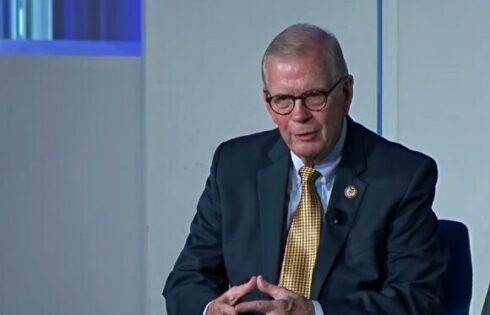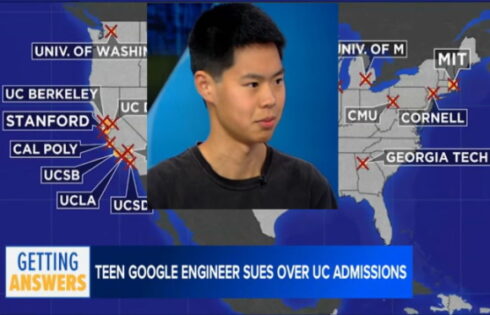
Computer science graduate student Leif Rasmussen wanted to test a hypothesis: the language of identity politics was appearing more and more frequently in scientific research proposals that had earned funding from the government.
While working on his Ph.D. at Northwestern University, Rasmussen observed signs of the new political priorities of his field. In a Winter 2022 article for City Journal, Rasmussen described his analysis of progressive terminology in science grant proposals.
His research led him to believe that scientists are increasingly forming their research projects with DEI objectives in mind. Even more, this politicization of their own research helps them secure government grants.
“Scientists dutifully paying lip service to fashionable progressive causes are more likely to be funded,” he wrote, “disadvantaging those who go against the current consensus.”
Rasmussen had thought before entering graduate school that critiques of woke higher education were overblown. He began a career in academia, he wrote, because he wanted to help people learn useful skills and concepts, and he believed that his program and scientific community would support this as a primary mission.
Three years in, however, he had “changed [his] mind about the politicization of academic life.”
While browsing abstracts of research projects funded by the National Science Foundation – a U.S. government agency that bankrolls science research with an annual grant budget of approximately $8 billion – Rasmussen decided to analyze trends in the use of “diversity,” “equity,” “inclusion” and similar terms in successful research grants from 1990 to 2020.
His analysis, published for the Center for the Study of Partisanship and Ideology, “showed a precipitous increase in the use of words related to identity politics.”
For example, in 1990, only 3 percent of the successful award summaries contained one of the following terms: “equity,” “diversity,” “inclusion,” “gender,” “marginalize,” “underrepresented,” or “disparity.”
Fast-forward to 2020, and nearly a third of all award abstracts contained at least one of those terms. In general, Rasmussen found that the range of research objectives and content had narrowed over time, as identity politics became increasingly dominant in funded research.
He summarized his findings and their implications:
While the number of awards granted—and the amount of money given out—by the NSF [National Science Foundation] has consistently grown since 1990, the degree of novelty in the award abstracts has remained flat or fallen across the various NSF directorates. All that talk of “diversity,” in other words, has been accompanied by diminishment of the actual diversity of ideas within these grant applications. …
The more the NSF pays attention to political or temperamental litmus tests, the less it pays to other, more vital, criteria—namely, the quality of the proposed work and the competence of the investigators. “And the more that scientific institutions are viewed as conduits for promulgating ideology, the less capable they will be of swaying public opinion on important issues.
The infusion of fashionable political platitudes into scientific research is bound to have a deleterious effect on both the quality of science and the public trust in scientific institutions. The growing view of science as a vehicle for activism detracts from its vital role: acting as a dispassionate referee to adjudicate the validity of empirical claims.
Rasmussen’s analysis of successful science grants is symptomatic of a radical shift in the mission of universities over the past several decades. The increased dominance of “‘diversity,’ ‘equity’ and ‘inclusion,'” to the exclusion of other terms, suggests the ascendance of this ideology as an ultimate purpose or telos — not just for our scholars and researchers, but for the government entities that fund them in the billions.
MORE: National Science Foundation to dole out $29M to battle sexism, racism in STEM
Like The College Fix on Facebook / Follow us on Twitter






Please join the conversation about our stories on Facebook, Twitter, Instagram, Reddit, MeWe, Rumble, Gab, Minds and Gettr.